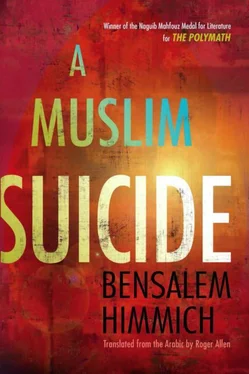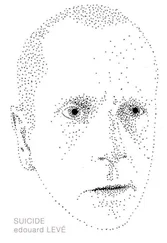Next morning Al-A'ma from Sicily accompanied me to the Tunis port. In return for a purse of gold, he gave me a horse laden with goods and cash, then entrusted me and my animal to one of the sailors. He bade me a fond farewell, but did not leave the dock until the boat that was transporting me to Alexandria was plowing its way through the waves.
DURING THE TRIP TO ALEXANDRIA I paid close attention to my surroundings; the calm seas and the sight of the wind-filled sails augured well. I made a point of spending time with my new horse so it could get to know me better. I also spent some time conversing with the other passengers and discovered that most of them were traveling from Andalus and the Maghrib, either to perform the pilgrimage, to engage in business, or else to look for somewhere to settle and earn a living.
In Alexandria I spent a couple of nights in a hotel so I could recover from the voyage and make preparations to go down to Cairo in a caravan that was leaving at dawn on my second day in Egypt. The journey went very smoothly, and the atmosphere on the way and at the stops was very pleasant and conducive. Seeing that the rest of the trip would be free of any dangers, I decided to do the rest of it on my horse so that I could get to Cairo as soon as possible and arrange my affairs there.
It was in the middle of the seventh century AH [thirteenth century CE] that I settled in Cairo. Sultan Thawran ibn Najm, one of the later Ayyubid rulers, was governing the country. His armed forces were busy preventing the rear guard of the Crusader army from occupying Damietta and the Syrian coastal region. In the city center, close by the Azhar Mosque,* I asked after Shaykh Abu al-Naja al-Nu'man. Some merchants directed me to his house. When I knocked on the door, a voice shouted to come in. I crossed the threshold, tethered my horse in the yard, and headed for the place from which the voice had come. I found myself face to face with a man in Sufi garb who showed me to my room and welcomed me as a friend who was coming in the name of Abu al-Hasan al-Shushtari. That task completed, he disappeared.
The room contained a sufficient quantity of basic necessities. In the corner was a place to wash and a pitcher full of water. I took my belongings over there and did my ablutions before praying. I then had something to eat and lay down to recuperate from the exertions of the trip to Cairo. I must assume that I fell asleep almost immediately because I did not wake up again till a full two days after my arrival. While asleep I was beset by a number of scary dreams, but the only one I can remember came in three separate parts. The first revealed to me an enormous woman dressed in black, but that was all there was to see. With a brutally direct gesture she forced me to stand up and proceeded to berate me in an utterly boorish fashion:
"Hey you," the vision said, "you've assaulted me and done me wrong. I hereby command you to take your spike out of my flesh. If not, I intend to accuse you in court of destroying my honor and well-being."
"You're going to raise a case against me, lady?"
"Yes, I am. I'm going to drag you to court so I can have my revenge."
In my dream, how I regretted the fact that I wheedled my way out of this confrontation with such a provocative woman! I faced her down and delivered a haughty challenge to her threats: "Go ahead, woman, go right ahead, take me to court then!"
It would have been so much better if I had chosen instead to use a calmer manner and discussed with her exactly what might have been these supposed relationships between my spike and her flesh. How much I regretted responding so aggressively! Ripping off her shawl and veil, I found myself facing Hafsa, the maid, or rather what was left of her: a wreck of a woman, bald, with no flesh, eyes, or teeth, a mere shadow of a human being, moving to an inevitable decline and disappearance into the void!
The second part of the dream involved Hafsa as well, with her decomposing body, but I was visiting her in the insane asylum. This time, I was speaking to her nicely, using the gentlest of phrases. Even so, she turned away in disgust and made do with heaping reproaches on me: "Do you see what you have done to me?" she said.
Part three of my dream involved Hafsa still further. This time it was on a boat, and the sailors were cutting her up limb by limb and throwing the pieces to the fish. When the only part of her left was her head, she stared at me with her teary, bloodshot eyes and once again exclaimed, "Do you see what you did to me?" With that the men on the boat started kicking and throwing the head around, but they ended up throwing it into the sea.
These horrible visions plagued me for three nights in a row. The only difference was that, when I woke up, I could not remember any details; all that remained was the sense of terror. The only way I found of stopping the whole thing was to turn the entire night into antimony.* If you want honey, I told myself, then there is no avoiding bee-stings. To stave off the bad effects of such nightmares, what was needed was obviously periods of contemplation and study, a certain amount of time spent recording details of my travels, or even going out and finding out as much as possible about the situation in Cairo and the way people there lived.
When I first decided to go out and look around, the squares and districts around the Azhar Mosque and the shrine of al-Husayn* were teeming with people of all shapes and sizes, each one of whom contributed in one way or another to the general clamor and hubbub. It only died down when the muezzin announced the call to prayer and the day moved toward its close.
For days and weeks I alternated between my residence (where I never set eyes on my host) and the outside world, where I frequented the mosque a great deal. In Fustat* I wandered around on foot, exploring the gardens, alleyways, and markets. In the Mu'izz* quarter of Cairo itself I visited the seven gates of the city on horseback, with their openings toward the River Nile and the Khalij Canal.* When I reached Salah al-din's walls, it made me stop and reminded me of his glorious deeds. I then turned aside to take a look at the shrine of Sayyida Nafisa,* the mosque of Ibn Tulun,* and the Elephant Lake.* I also went to look at the monuments from the Fatimid and Ayyubid periods. Surely the only permanence belongs to the Necessary Existent, the light of the heavens and the earth!
After I had been in Cairo for five whole months there came the day when I really longed to see Al-Shushtari. I started asking some of the students at the Azhar and nearby residences if they had seen him. But, even though they all recognized his name and description and sang his praises, I found no trace of him. It so happened that a group of students made my acquaintance and followed me to the revered mosque. There they performed the afternoon prayer with me, then started asking me questions about Andalus and the Maghrib. They begged me to arrange a class for them; I could choose the topic or respond to some of their interests and concerns. I had to agree to their request, so I sat them all down in an isolated corner and made ready to address them. But, no sooner had I uttered the phrase "In the name of God" and offered blessings to the Prophet than a man came over and informed me that he was the mosque overseer. Without a license from the relevant religious authorities, teaching in the mosque was forbidden. That said, he went back to his place at the back of the assembled group and stood there with his guards watching.
The whole situation bothered me a great deal, especially since I noticed that there was a good deal of unrest among the group. Here and there I spotted some suspicious gestures being exchanged.
"So," I said as I stood up and addressed the students, "we've been prevented from speaking in God's own house, but God's earth is spacious enough."
Читать дальше












